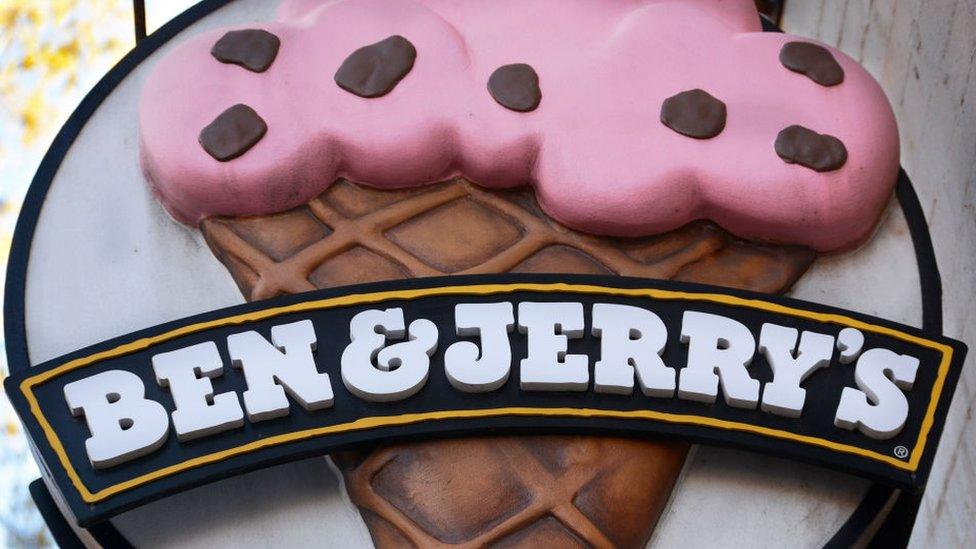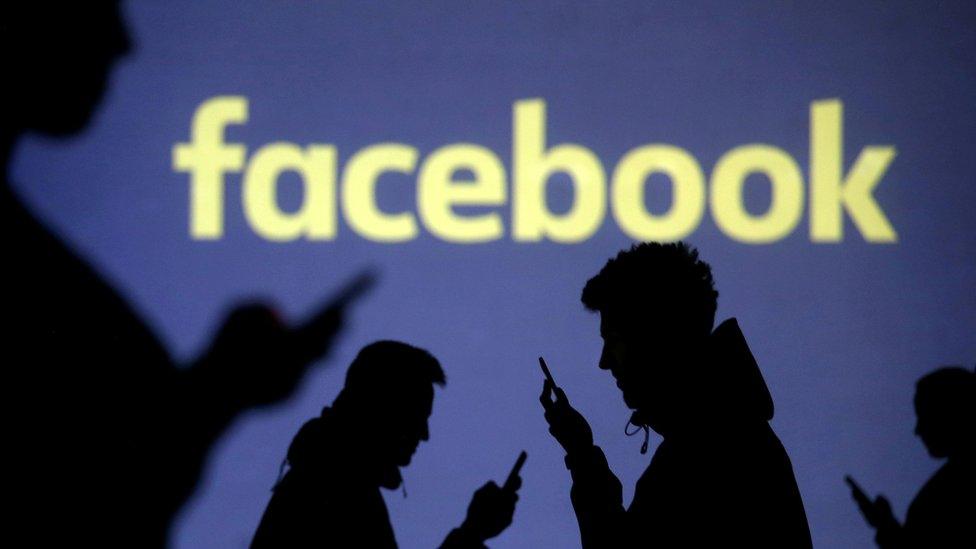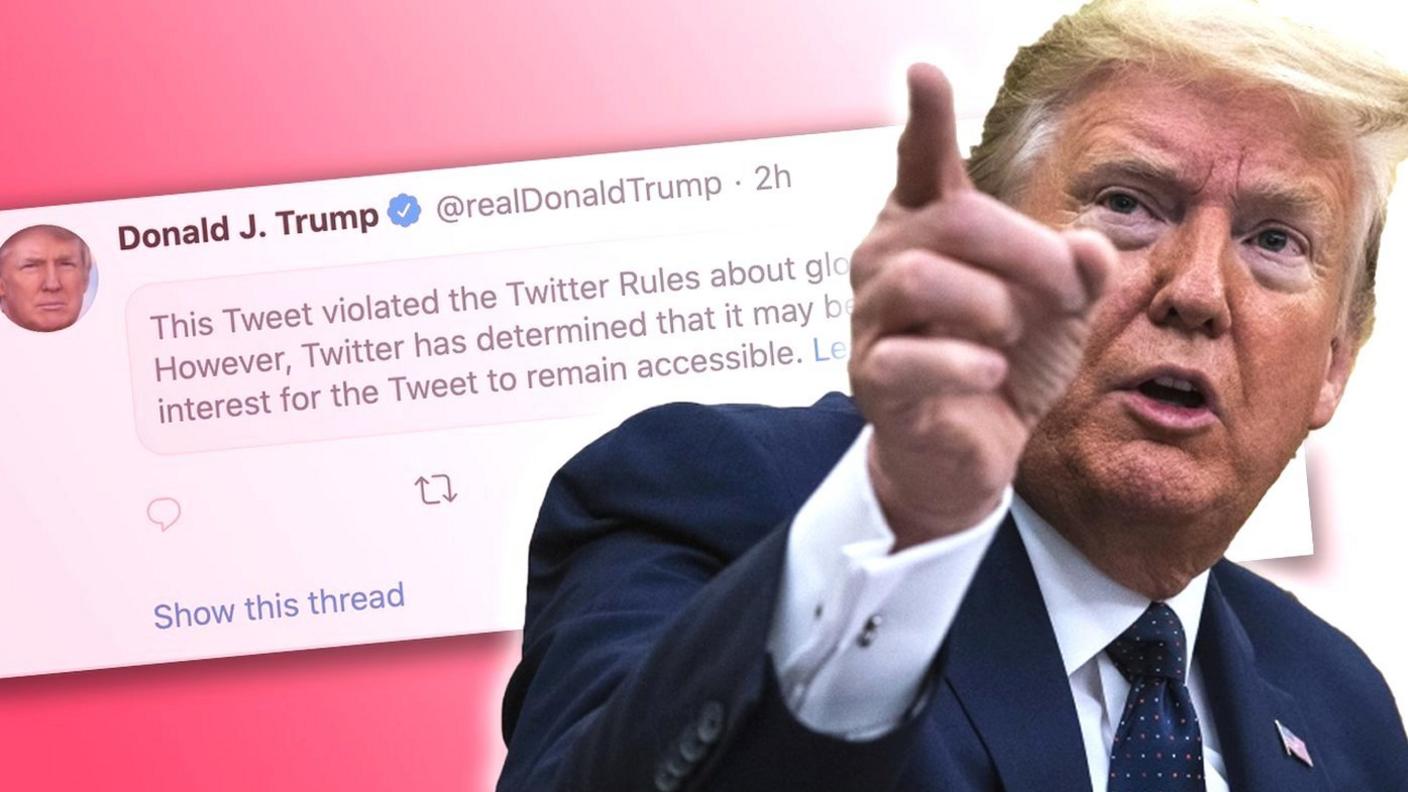George Floyd: Ben & Jerry's joins Facebook ad boycott
- Published

Ben and Jerry's has joined a growing list of firms pulling advertising from Facebook platforms throughout July.
It's part of the Stop Hate For Profit campaign, which calls on Facebook to have stricter measures against racist and hateful content.
Ben and Jerry's Tweeted that it "will pause all paid advertising on Facebook and Instagram in the US".
Facebook has said it is committed to "advancing equity and racial justice".
Earlier this week outdoor brands The North Face, Patagonia and REI joined the campaign.
Ben and Jerry's said it is standing with the campaign and "all those calling for Facebook to take stronger action to stop its platforms from being used to divide our nation, suppress voters, foment and fan the flames of racism and violence, and undermine our democracy."
Allow X content?
This article contains content provided by X. We ask for your permission before anything is loaded, as they may be using cookies and other technologies. You may want to read X’s cookie policy, external and privacy policy, external before accepting. To view this content choose ‘accept and continue’.
After George Floyd's death in police custody, Ben and Jerry's chief executive Matthew McCarthy said "business should be held accountable" as he set out plans to increase diversity.
George Floyd died in Minneapolis in May as a white police officer held a knee on his neck for nearly nine minutes.
The final moments were filmed on phones. Four police officers involved have been sacked and charged over his death.
Earlier this week the freelance job listing platform Upwork and the open-source software developer Mozilla also joined the campaign.
"We're taking steps to review our policies, ensure diversity and transparency when making decisions on how we apply our policies, and advance racial justice and voter engagement on our platform," Facebook said on Sunday, external.
The statement also pointed to the company's Community Standards, which include the recognition of the platform's importance as a "place where people feel empowered to communicate, and we take seriously our role in keeping abuse off our service".
A European Commission report, external this month found Facebook removed 86% of hate speech last year, up from 82.6%.
The social network, says almost all of the content which violates its policies is automatically detected by its systems and removed before it is reported.
Stop Hate for Profit
The Stop Hate for Profit campaign was launched last week by advocacy groups, including the Anti-Defamation League, the National Association for the Advancement of Colored People, and the Color Of Change.
The movement has said it is a "response to Facebook's long history of allowing racist, violent and verifiably false content to run rampant on its platform".
Stop Hate for Profit has called on advertisers to pressure the company to adopt stricter measures against racist and hateful content on its platforms by stopping all spending on advertising with it throughout July.
Last year the social network attracted advertising revenue of almost $70bn (£56bn).
Facebook, and its chief executive Mark Zuckerberg, have often been criticised for the handling of controversial subjects.
This month the company's staff spoke out against the tech giant's decision not to remove or flag a post by US President Donald Trump.
The same message was shared on Twitter, where it was hidden behind a warning label on the grounds that it "glorified violence".
Unilever, the parent company of Ben and Jerry's, did not immediately respond to a request for comment from the BBC.
- Published1 June 2020

- Published29 May 2020
